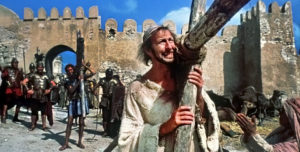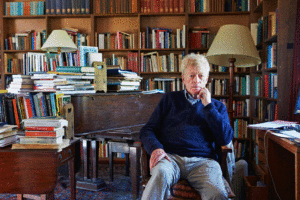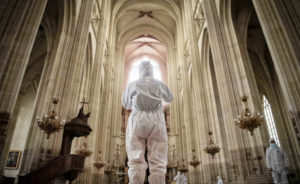-
The hardest word in Hegel’s notoriously difficult Phenomenology of Spirit appears in the book’s final sentence. It is not a dense new German construction, but the translation of a Hebrew place name. Or, perhaps better, of an Aramaic place name,
What Pagans can learn from Christianity
“I do not know much about gods,” wrote T.S. Eliot in The Dry Salvages, “but I think that the river is a strong brown god.” Eliot was a devout Anglican, but he lived at a time when classical education and …
The death of Christian privilege
In a cemetery near the fishing village of Mousehole, in Cornwall, stands a memorial stone to Dolly Pentreath. Erected in 1860, it commemorates her death in 1777: already, by then, the last known native speaker of the Cornish language.
What …
How political was Jesus?
Blaise Pascal is right to have jotted in one of his baroque notebooks that Jesus lived “in such obscurity… that historians writing of important matters of state hardly noticed him”. And Erich Auerbach is right to have stressed in a …
Was Jesus a revolutionary?
Easter is the time when Jesus Christ is said to have risen from the dead, having hung on a cross for six hours between two thieves. We are told that one of the thieves was saved, which Samuel Beckett described …
We’ve forgotten how to die
Why do some people take a peep at the last few pages of a novel first? Yes, we know it’s cheating. But forget whether a cheeky glance at the ending constitutes a great crime against reading — why do many …
Trashy Tories should read Roger Scruton
“Love is a relationship between dying things,” said Roger Scruton just months before he was to succumb to lung cancer. We hold on to the ones we love, and hold them ever closer, precisely because they are mortal and will …
Why we cling on to Christmas
In the strangest of times, the strangest of festivals. Dulled by familiarity, piled over with good food, buried in torn wrapping paper, drowned in good drink: can we see Christmas again for what it is?
In days that seem unprecedented, …







